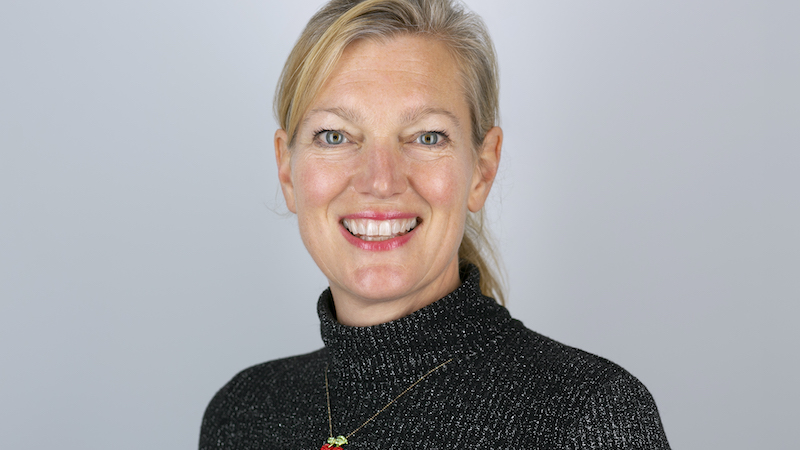Hargreaves Lansdown’s platform charges have been thrust into the spotlight as it makes a U-turn on discounted fees for funds in its revamped buy list.
The D2C platform giant unveiled its Wealth Shortlist, a rebranded version of its Wealth 50 list, which came under fire for its championing of the now defunct Woodford Equity Income fund, formerly managed by Neil Woodford.
Of the 17 funds that were added to Hargreaves’ revamped buy list, 12 do not offer a discount on fees. Nine of the funds Hargreaves did not broker a better deal on were active funds.
Charges of funds added to the Wealth Shortlist
| Fund name | Asset Class | OCF | HL discount | Net OCF |
| Schroder Asian Alpha Plus | Asia | 0.87 | 0 | 0.87 |
| First State Greater China Growth | Asia | 1.07 | 0.05 | 1.02 |
| Stewart Investors Indian Subcontinent Sustainability | Asia | 1.11 | 0 | 1.11 |
| Artemis Corporate Bond | Corporate & Government Bonds | 0.4 | 0.05 | 0.35 |
| ASI Global Smaller Companies | Global | 1.05 | 0.27 | 0.78 |
| Fidelity Global Dividend | Global | 0.92 | 0 | 0.92 |
| Troy Trojan Global Income | Global | 0.95 | 0 | 0.95 |
| Fidelity Index World | Global | 0.12 | 0 | 0.12 |
| First State Japan Focus | Japan | 0.9 | 0 | 0.9 |
| Baillie Gifford American | North America | 0.52 | 0 | 0.52 |
| Artemis US Smaller Companies | North America | 0.89 | 0.09 | 0.8 |
| BNY Mellon Sustainable Real Return | Responsible | 0.85 | 0 | 0.85 |
| Legal & General Future World ESG Developed Index | Responsible | 0.25 | 0 | 0.25 |
| Liontrust UK Growth | UK Growth | 0.89 | 0 | 0.89 |
| Fidelity Special Situations | UK Growth | 0.91 | 0 | 0.91 |
| Legal & General UK 100 | UK Growth | 0.1 | 0.04 | 0.06 |
| Legal & General UK Mid Cap Index | UK Small & Mid-sized Companies | 0.14 | 0 | 0.14 |
Source: Hargreaves Lansdown
This is a far cry from the existing Wealth 50 constituents where only four funds, all iShares trackers, did not agree to lower fees. In one case, the iShares Japan Equity Index agreed to a negative discount of –0.01%, taking its OCF from 0.08% to 0.09%.
Of the 14 new active funds that made it onto the Wealth Shortlist, Hargreaves secured an average discount of 0.04%. The average discount across the 41 active funds in the Wealth 50 before it switched to the Wealth Shortlist was 0.23%.
As such the average net OCF of funds in the revamped buy list ratcheted up by 10% from 0.48% to 0.53%.
“One of the biggest criticisms of the Wealth 50 was a perception of a reliance on discounts in order to make it onto the list,” Hargreaves Lansdown investment head Emma Wall told Portfolio Adviser in a statement. “We have listened to this.”
“Our research found that clients were most concerned with potential performance,” Wall continued. “The price we are able to negotiate on a fund is not a factor in deciding whether a fund makes the list. And we have also made it easier for investors to compare costs.”
Hargreaves discount offset higher than average fees
CWC Research managing director Clive Waller finds Hargreaves’ decision to backtrack on price when selecting funds for its best buy list confusing.
“Hargreaves have always used their clout as the biggest broker in town to do deals,” Waller says. “In the past, it was rebates that made the shareholders a bob or two. When rebates were banned by RDR, they negotiated discounts which didn’t help the shareholders but gave them a competitive edge.
“One could argue that the discount offset their higher than average fees,” Waller adds.
Analysis conducted by Which? found Hargreaves was among the most expensive platforms for client portfolios with £50,000 in assets and charged double AJ Bell Youinvest and eight times more than Vangaurd in annual fees for client pots above £1m.
GBI2 managing director Graham Bentley says removing the discount factor dispels the claim that funds got on the list simply through brokering a cheaper price.
“The fact that this makes the total cost of ownership a tiny bit higher seems less than relevant, given their apparent success in holding on to and gaining new investors, and, Neil Woodford aside, the high regard the platform seems to experience from a majority of its customers,” he says.
The D2C giant has been accused of excluding Terry Smith’s top quartile Fundsmith Equity fund due to Smith’s unwillingness to negotiate on fees. It faced similar criticisms after Crispin Odey’s Opus fund and Anthony Cross’ Liontrust Special Situations funds did not make it onto Hargreaves’ streamlined Wealth 50 list after refusing to budge on fees, while Neil Woodford, who slashed fees on Woodford Equity Income by a third for its customers, made the cut despite years of poor performance.
See also: Hargreaves slams questions over Wealth 150 omission
Cross’ Liontrust UK Growth fund, which he also runs alongside Julian Fosh, was one of the four UK funds to make it onto Hargreaves’ revamped buy list on Tuesday. The £478.9m fund has an OCF of 0.89%, making it slightly more expensive than the duo’s Special Situations fund at 0.84%.
Alex Wright’s £2.2bn Fidelity Special Situations fund reappeared in the latest iteration of Hargreaves’ recommended funds list after also being dumped ahead of the Wealth 50 launch last January. It has never offered a discount to Hargreaves customers, charging 0.91%.
Fidelity Global Dividend and Troy Trojan Global Income, which were among the new Global fund picks for the Wealth Shortlist, also do not offer discounted fees, charging 0.92% and 0.95% respectively. Fundsmith Equity’s OCF is also 0.95%.
Passive funds amplify ‘ridiculous price disparity’
But Open Money CEO and co-founder Anthony Morrow says Hargreaves’ position on passive funds “shows the quite ridiculous price disparity of the platform”.
The Legal & General UK Index, an original holding of the Wealth 50 list, is the sole FTSE 100 tracker recommended on the new Wealth Shortlist. Hargreaves offers the fund at a 40% discount, bringing the OCF down from 0.10% to 0.06%.
But Morrow questions why Hargreaves would choose that fund and not a cheaper version like the Vanguard FTSE 100 tracker, priced at 0.06%, if not for the discount.
“The big question is why use Legal & General because there aren’t many advisers out there who would recommend it ahead of the real heavyweights in that space like Vanguard,” he says. “It will be that they won’t offer discounts and certainly will not provide discounts of 40%.”
After factoring in Hargreaves’ platform fees Morrow calculates that buying the single L&G tracker will cost around 0.51% per annum with 88% of that going on administration of a single fund. “That is ridiculous”.
Three out of four of the new trackers added to the Wealth Shortlist did not negotiate on fees. The most expensive of the lot, the Legal & General Future World ESG Developed Index, charges 0.25%.
‘As we saw with Woodford Hargreaves got too big for comfort’
Boring Money CEO and founder Holly Mackay (pictured) says removing price from the fund selection equation was the “path of least resistance” for Hargreaves.
Although fund discounts were passed onto clients, Mackay says the inclusion of charges “muddied the water in a way that was unpalatable for the media”. “The new structure is cleaner from a governance perspective but ironically I suspect investors will occasionally end up paying more in what could be seen as a Pyrrhic victory for the media.”
She says the move marks a “coming of age moment” for the industry “when the leading DIY investment platform acknowledged it got too big to effectively use full purchasing power clout whilst also safely managing governance, conflicts and liquidity”.
Over the last decade liquidity has gone from being an occasional thought for platforms to a key concern, she says. The DIY investing market has ballooned from £65bn to £226bn in 2020 and this March the number of DIY investment accounts hit an all-time high of 5.95 million.
“With a fairly consistent 40% market share, the money moved into the ‘Hargreaves Wealth However-Many’ is an increasingly huge wave to be navigated,” Mackay says. “And as we saw with Woodford, it got too big for comfort.”
Langcat consultant Mike Barrett also suspects the U-turn on discounts is in response to pressure from the regulator.
In a Dear CEO letter earlier this year the Financial Conduct Authority warned that platform providers must construct best buy lists impartially and manage conflicts, including a “preference for funds offering discounts over formal and objective criteria”.
“I think the FCA are expecting best buy lists to be driven by formal & objective research criteria, rather than discounts, so this explains Hargreaves’ approach for the new funds they have added,” Barrett says.
U-turn on discounted fees unlikely to put pressure on platform charges
Despite this Waller doesn’t think Hargreaves’ decision to prioritise performance over price in the Wealth Shortlist will put pressure on the group to lower its platform charges.
The D2C market is still not very price sensitive “oddly enough”, Waller says, and many industry professionals continue to use Hargreaves, being fully aware of its comparatively higher charges.
Bentley agrees that the change on discounted fees is unlikely to affect Hargreaves’ ability to retain customers or acquire new ones. New customers with relatively low assets invested will see little nominal difference between Hargreaves and AJ Bell Youinvest, he notes, “so there’s less pressure than you might imagine”.
“If Hargreaves saw market share being seriously challenged then I wouldn’t be surprised to see pressure to cut prices at the higher end, but then again Hargreaves shareholders might be less enamoured if it was to take that route.”
Hargreaves has said it will continue to negotiate discounts on behalf of clients. It has also added a charges comparison tool so investors can see how funds in the Wealth Shortlist stack up against their peers.
Wall said: “We are committed to driving down the cost of investing across our service. We’ve removed nine fees in the last twelve months and now have a very simple and transparent fee structure, where online clients pay HL the service fee plus the cost of any share deals and nothing more.
“Our commercial teams are focused on reducing costs across the whole platform and 30% of funds across the platform have a discount to the standard cost. “











